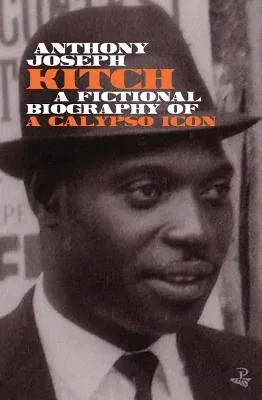The poet and musician Anthony Joseph met and spoke to Lord Kitchener
just once, in 1984, when he found the calypso icon standing alone for a
moment in the heat of Port of Spain's Queen's Park Savannah, one
Carnival Monday afternoon. It was a pivotal meeting in which the great
calypsonian, outlined his musical vision, an event which forms a moving
epilogue to Kitch, Joseph's unique biography of the Grandmaster.
Lord Kitchener (1922 - 2000) was one of the most iconic and prolific
calypso artists of the 20th century. He was one of calypso's most loved
exponents, an always elegantly dressed troubadour with old time male
charisma and the ability to tap into the musical and cultural
consciousness of the Caribbean experience. Born into colonial Trinidad
in 1922, he emerged in the 1950s, at the forefront of multicultural
Britain, acting as an intermediary between the growing Caribbean
community, the islands they had left behind, and the often hostile
conditions of life in post War Britain. In the process Kitch, as he was
affectionally called, single handedly popularised the calypso in
Britain.
Kitch represents the first biographical study of Aldwyn Roberts,
according to calypso lore, christened Lord Kitchener, because of his
stature and enthusiasm for the art form. Utilising an innovative,
polyvocal style which combines life-writing with poetic prose, the
narrative alternates between first person anecdotes by Kitchener's
fellow calypsonians, musicians, lovers and rivals, and lyrically rich
fictionalised passages. By focussing equally on Kitchener's music as on
his hitherto undocumented private and political life, Joseph gets to the
heart of the man behind the music and the myth, reaching behind the
sobriquet, to present a holistic portrait of the calypso icon.

